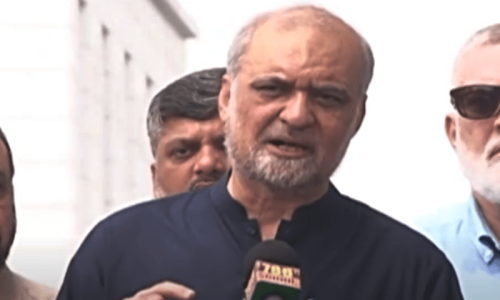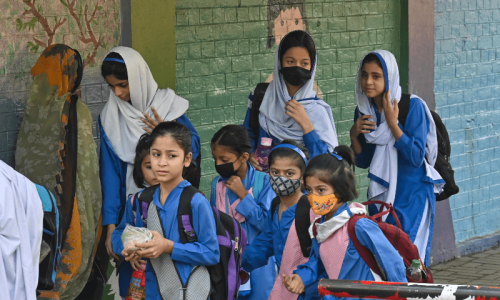KARACHI, April 6: New Sindh High Court Chief Justice Sabihuddin Ahmed asked the lawyers to shun frivolous litigation and bring only those cases to the court that merit its consideration. Speaking at a reference held in his honour in the CJ’s courtroom, he said there was a public outcry against the efficacy of the justice delivery system. Frivolous litigation unnecessarily burdened the court, delayed dispensation of justice and harmed the interests of genuine litigants. He said he was aware that if one lawyer declined a brief, the client would go to another and persuade him to accept it but he would still advise the legal fraternity to resist the temptation in the interest of public and legal system.
The CJ expressed his doubts about the usefulness of the system of alternative dispute resolution, including the traditional indigenous mechanisms, in a society driven by socio-economic disparities. Such mechanisms being more amenable to manipulation, the legal system had a greater responsibility to dispense justice without favour or delay.
About lawyers’ proposals, he said he discussed the plea for a separate Sindh High Court Bar Association building within the high court compound with the provincial governor and chief minister in the advocate-general’s presence immediately after taking oath. He asked the SHCBA president and the AG to mutually work out details.
Justice Ghulam Rabbani, the senior puisne judge in the absence of Justice Ataur Rahman, recalled his long association with the CJ and said he was a well-read person committed to civil liberties. His grandfather (Maulana Salahuddin Ahmed) brought out a reputed literary journal and his father was a chairman of the National Press Trust. The late Khalid M. Ishaque, with whom he started his legal practice, was his maternal uncle, he said.
AG Anwar Mansoor Khan said he counted up to 200 of CJ’s judgments reported in law journals in the various fields of law. He believed in equity and equitable relief within the parameters of law and the bounds of statute. In a recent judgment, he held that the expression ‘aggrieved person’ occurring in Article 199 of the Constitution was not confined to a person having a strict legal right but extended to ‘any person having a legitimate interest in the performance of a public duty’.
The AG drew the CJ’s attention to the plight of lower judiciary. The SHC itself, he emphasized, was short of nine judges. Appointment of judges to bring the court to its sanctioned strength should be made on a priority basis to reduce the pendency of cases, which was increasing by the day. He also called for computerized display of the cause list and the progress of cases in the bar room and outside the courtrooms so that the counsel and the parties could attend the hearing without delay and without having to wait in the courtrooms and verandahs endlessly.
SHCBA President Akhtar Hussain called for judicial activism to promote a democratic culture. In one case, he said, Justice Sabih held that once the fact of illegal detention was established, award of monetary compensation to the detainee was a more efficacious mode of relief. He called for fixation of urgent motion cases within 48 hours. A piece of land should be allocated to the SHCBA in the court compound to construct office, a spacious library and an auditorium for seminars, he said.
Sindh Bar Council Vice-Chairman Noor Naz Agha recalled that the CJ was a founding member of the Human Rights Commission of Pakistan and also served it as its vice-chairman. She said female and minority lawyers should be given due representation on the Bench.
Karachi Bar Association President Mahmoodul Hasan said high court judges should be appointed after consultation with the Bar representatives.
Deputy Attorney-General Nadeem Azhar Siddiqui facilitated the CJ on behalf of the federal government.













































Dear visitor, the comments section is undergoing an overhaul and will return soon.